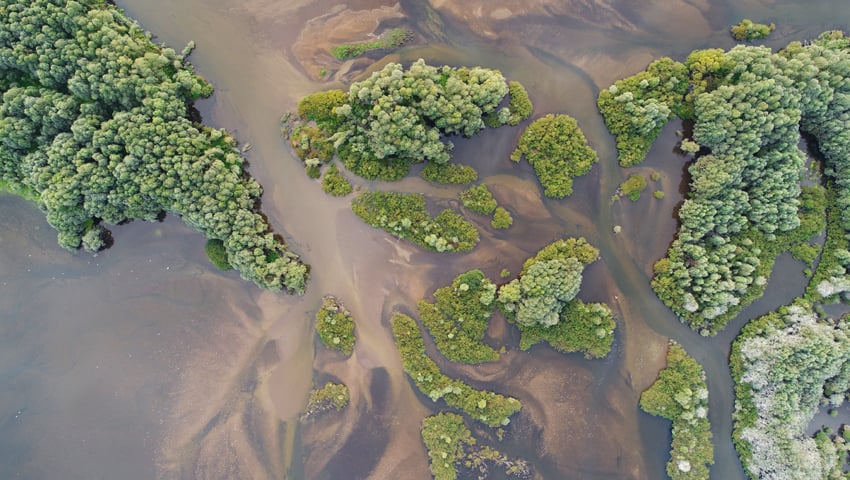A new report by IPES Food – Land Squeeze – claims that soaring land prices, land grabs and carbon schemes are creating an unprecedented threat to farming and food production.
8.9ha editor, ffinlo Costain, spoke to Nettie Wiebe, a farmer and author of the report, and an IPES-Food expert from the University of Saskatchewan in Canada.
Throughout her life Wiebe has combined farming (crops and cattle) with social activism, political engagement and academia. She served in elected leadership positions of the Canadian National Farmers Union for ten years, and under her leadership the NFU helped found and build La Via Campesina (LVC), the global peasant, small-scale farmers, rural workers and indigenous peoples’ movement.
Wiebe said, “We are at the tipping point. What we considered globally as sort of a renewable, an inexhaustible resource is, in fact, shrinking on many fronts in dangerous ways. In the farming context it is quite astonishing – 1% of farms globally control 70% of the land – that’s an acute concentration of control over food production resources – but it’s not just farming of course, land has many meanings – land is also about where we live, what we eat and who we are – it’s culturally embedded.”
Wiebe explained that the drivers of this unprecedented land squeeze are complex. She said, “One of the key elements is industrialisation of agriculture and larger farms, but also increasingly regulation and financialisation of farmland. Farmland has become a huge investment opportunity for big money and that’s a huge part of the squeeze – certainly the squeeze on a small-scale farmers who can no longer afford to buy land because there’s deep pockets, big investors grabbing it.
“Then there’s another whole new phenomenon, and this I think we really need to focus on, which is green grabbing.
“There are – driven by a very commendable initiative to try and combat climate change and protect biodiversity – huge initiatives now for big investors as well as governments to set aside land, to use offsets, to basically take over control of land, often in the most rich biodiverse areas of the world – and then to second them into projects, such as renewable fuels, which are monocultures and destroy biodiversity and undermine food security, as well as conservation areas, which then evict those who often have taken care of that land for thousands of years.”
IPES Food says that it is concerned about the role of the global natural capital marketplace and the acquisition of land by large financial interests for carbon and biodiversity offsets.
Wiebe said, “It’s a very complex discussion because most of us who are very engaged in farming and in food sovereignty work, social justice, just transition works, are in some ways in a very precarious place in terms of critiquing this, but it needs to be critiqued.
“A lot of what is carbon offsets and zero carbon isn’t reducing carbon it’s actually just shifting the burden of protection into places where it’s doing more harm than good. And one of those places – and I’m speaking from the point of view as a small-scale farmer – is the eviction and displacement of small scale farming, of rural communities and of indigenous peoples.”
Wiebe outlined places where the problem of green land grabbing is most acute. She said, “When it comes to green-grabbing, it’s Africa and Latin America – when it comes to speculative financing in land then Eastern Europe has seen a doubling and tripling of land prices – in Canada and in the UK land prices have sky-rocketed – so it depends on which part of the world you’re looking at. But in all of these places, some components of these problems are expressing themselves in such a way that we’re at a tipping point. And let me just say that this isn’t just a problem for us farmers – this is a problem for anybody who wants a good healthy lunch, produced locally, and who who cares about the environment and about communities and cultures.”
While IPES Food makes a strong case, there is a question-mark over whether – despite the challenges and risks of the global natural capital marketplace – large-scale offsetting isn’t necessary to deliver the scale of carbon drawdown and biodiversity regeneration that’s necessary, at a rate that can ensure a liveable world in the near-future.
“On the contrary,” says Wiebe. “I think that introducing these offsetting schemes, which obviously give priority to the biggest investors – and let me just add, to the biggest polluters, because we’re seeing a huge intrusion of oil money, for example, into this offsetting market – taking that out of there would give us a chance to re-evaluate and re-establish what really needs to happen, which is not carbon offsets but the reduction of pollution and the protection of biodiversity, and as I said earlier, protection of biodiversity has been traditionally the role of peasants and indigenous communities – and much of the land that’s now being diverted from carbon offsets is, in fact, biologically, the most diverse and rich territory in the world.”
The IPES-Food expert panel is calling for action to:
- Halt green grabs and remove speculative investment from land markets
- Establish integrated governance for land, environment and food systems to ensure a just transition
- Support collective ownership and innovative financing for farmers to access land
- Forge a new deal for farmers and rural areas, and a new generation of land and agrarian reforms
Watch our interview with Nettie Wiebe
